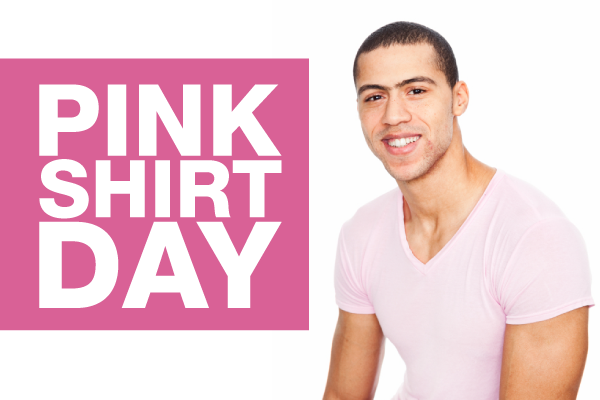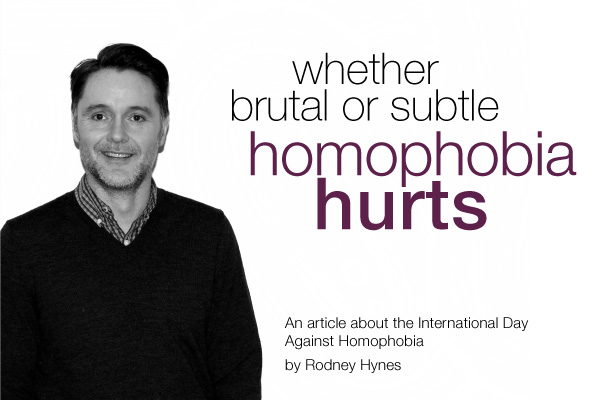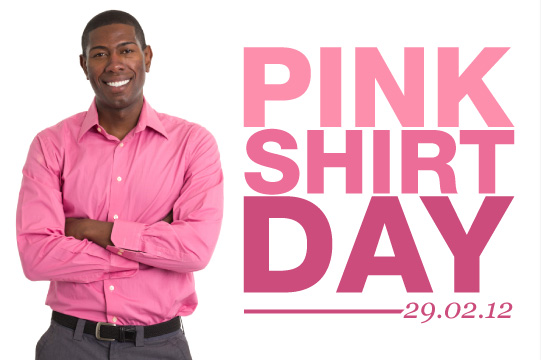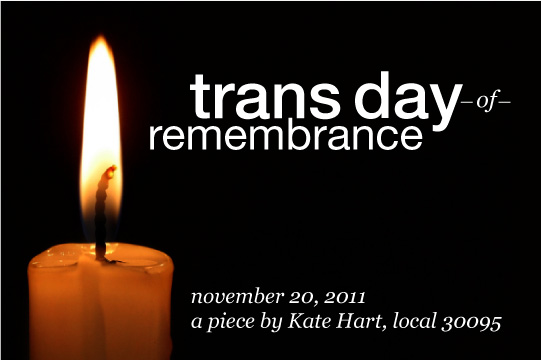By Steve Houston
“Then they came for me–and there was no one left to speak for me.”
– Martin Niemöller
There were times in my youth, when a kind of divine providence would step in – between me and a group of boys determined to bully me into feeling worthless.
For reasons I could not have explained at the time, there was always one boy from the approaching mob who would say “no”. In doing so, he would pluck me from the jaws of impending doom. There would be grumbling, obviously, and he might have to brush me aside for effect.
But in that miraculous moment, I would breathe again. Never looking back, I would walk away lost in what had just happened – and I would slowly begin to feel safe in the world again. The boy and I would never become friends, but knowing he existed gave me hope that things could get better.
Pink Shirt Day taps into that kind of divine providence. We wear pink on that day to say “no”. In so doing, we form a wall between LGBT youth and the bullies determined to make them feel worthless.
But while things are generally getting better in North America, it’s not the case everywhere else in the world.
Human Rights Watch has been urging Russian authorities to address widespread violence being perpetrated against LGBT people. In some of the more egregious cases, bullies have used dating sites to lure young gay men into meeting them, before forcing them to admit their homosexuality on camera and severely beating them. Not only is Russia turning a blind eye to this violence, their rhetoric is adding fuel to the fire.
It’s for this reason that, this year, the It Gets Better project asked its supporters to direct messages of love and support to the LGBT youth in Russia. The project was launched in 2010 by Dan Savage and his partner Terry Miller in response to the overwhelming number of LGBT youth who choose suicide to end their pain. The movement has since gone global.
Instances like these make it all the more important for us to intervene – to protect vulnerable young people against those who wish to cause them harm.
On Wednesday, we wear pink to say we exist and, for a poignant moment, the world may feel like it’s a safer place to be – poignant moments like this flash mob of elementary school students at a Vancouver Giants hockey game.
Imagine that at Sochi…. If we all band together against violence, the future looks bright and pink.
This article was written by Steve Houston as part of our member journalism program. Steve Houston serves on the UNE’s human rights committee as the regional human rights representative for the B.C.-Yukon region.



